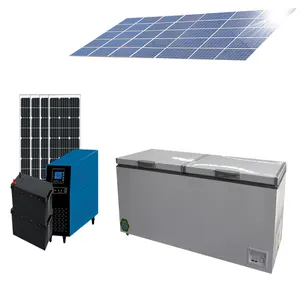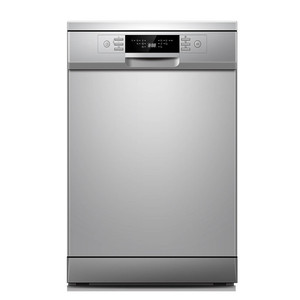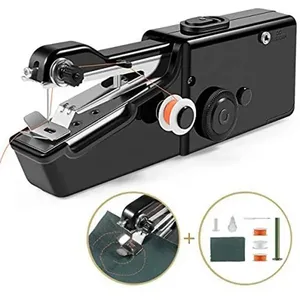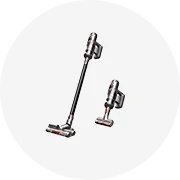Popular in your industry



































Top categories
About heat pumps
Types of heat pumps
Heat pumps work like air conditioners in the reverse direction. They move heat from one place to another. They use refrigerant to absorb heat from the air, water, or the ground and then release it into the home. Because they move heat instead of creating it, heat pumps are more energy efficient and environmentally friendly than traditional HVAC systems. Heat pumps can provide both heating and cooling depending on the model.
Heat pumps come in various types, including:
- Air-source heat pump: This type absorbs and releases heat into the air. It is the most common type of heat pump. An air-source heat pump can work in heating mode by absorbing heat from the outside air and releasing it to the inside, or in cooling mode by absorbing heat from the inside air and releasing it outside.
- Ground-source heat pump: Also known as geothermal heat pumps, ground-source heat pumps absorb and release heat from the ground. They use a loop of underground pipes filled with a refrigerant to transfer heat between the ground and the house. Ground-source heat pumps are more efficient than air-source heat pumps because the ground has a more stable temperature than the air throughout the year. They can be used in open-loop or closed-loop systems.
- Absorption heat pump: This type uses heat to operate instead of electricity. It typically uses natural gas, propane, solar energy, or geothermal energy to produce the heat needed for the refrigerant to absorb and release. Absorption heat pumps are commonly found in large HVAC systems and some water heaters.
- Ductless mini-split heat pump: This type of heat pump operates without ducts. It has an outdoor compressor unit and one or more indoor air-handling units. Each indoor unit is installed in a separate room, allowing for customized heating and cooling in different areas of the home. Ductless mini-split heat pumps are ideal for homes with no ductwork or for room additions where extending ductwork is not feasible.
- Hybrid heat pump: This type combines a heat pump with a furnace. It can switch between electricity and gas to heat the home depending on the weather and energy prices. Hybrid heat pumps provide flexibility and efficiency by using the most cost-effective energy source at any given time.
Heat pumps are more energy efficient than air conditioners, which is why they are a popular choice for heating and cooling homes. They have a higher SEER rating (Seasonal Energy Efficiency Ratio) than air conditioners. This means they use less energy to cool the home. Heat pumps can be a good option for areas with moderate climates where very high or low temperatures are not common.
Functions and Features of Heat Pumps
The primary function of heat pumps is to transfer heat from one place to another. They are an efficient way to heat and cool buildings. Heat pumps provide both heating and cooling solutions, depending on the configuration. In the winter, the outdoor unit absorbs heat from the air and transfers it indoors. In summer, the heat pump works in reverse, removing heat from inside the building and releasing it outside. This dual functionality makes heat pumps versatile systems for maintaining indoor comfort throughout the year.
Heat pumps come in different types, each with unique features and benefits. Some heat pumps are primarily designed for heating, while others can provide both heating and cooling. The type of heat pump selected will depend on the user's needs and preferences. Geothermal heat pumps (also known as ground-source heat pumps) rely on the relatively constant temperature below the ground to provide heating, cooling, and hot water. They are more efficient than air-source heat pumps but can be more expensive to install. Geothermal heat pumps are ideal for homeowners who want a long-term investment in energy savings and sustainability.
Air source heat pumps are more common than ground-source heat pumps. They are easier to install and work by extracting heat from the air outside the home and transferring it inside. Air source heat pumps can also provide cooling in the summer by absorbing heat from indoor air and releasing it outside. Ductless mini-split heat pumps are a type of air source system that can heat or cool individual rooms. They consist of an outdoor compressor and one or more indoor air-handling units. Ductless mini-split heat pumps are ideal for homes without ductwork or where zoned heating and cooling are desired.
Heat pumps are available in various sizes and capacities to suit different applications. Some heat pumps are designed for residential use and can heat or cool single-family homes, apartments, or condominiums. Larger commercial heat pumps are built to condition air in commercial and industrial spaces, such as offices, retail stores, warehouses, and manufacturing facilities. Commercial heat pumps typically have higher heating and cooling capacities than residential models to meet the demands of larger buildings.
Scenarios
Heat pumps for buildings have several applications. Here are some of them:
- Space Heating and Cooling for Residences
Heat pumps can be used to heat or cool homes. During winter, the heat pump absorbs heat from outside and brings it inside. This heats the home. During summer, the heat pump takes heat from inside and sends it outside. This cools the home. In moderate climates, a heat pump can provide both heating and cooling for a home throughout the year.
- Hot Water
Heat pumps can heat water for a home. They are more efficient than electric water heaters. An air-source heat pump can heat a home and its water. Or a heat pump water heater can just heat the water. Geothermal heat pumps can also heat water for a home.
- Heating and Cooling Small Buildings
Heat pumps can be used to heat or cool small buildings. This includes homes, but also other small buildings like schools, daycare centers, and small offices.
- Heating and Cooling Commercial Buildings
Heat pumps can be used to heat or cool large commercial buildings. This includes office buildings, malls, and other large buildings. They are used in heating, ventilation, and air conditioning systems (called HVAC systems).
- Heating and Cooling Industrial Buildings
Heat pumps can also be used to heat or cool industrial buildings. This includes factories and other large buildings where things are made. Heat pumps can provide the heat needed to make things. They can also cool buildings to keep workers comfortable.
How to Choose Heat Pumps
When purchasing heat pump water heating devices for sale, buyers must consider their customers' specific requirements, among other factors. By doing this, they'll be able to offer a variety of heat pump water heaters that cater to different customer needs and preferences. Below are some factors to consider when purchasing these water heating devices.
- Energy Efficiency
Heat pump water heaters have become popular because of their energy efficiency. They use electricity to move heat from one place to another instead of generating heat directly. This helps in reducing electricity consumption. Business owners should make sure the devices they are purchasing are energy efficient. This information is usually available on the system's Energy Factor (EF). A higher EF shows that the system is more energy efficient. The EF also gives the amount of electricity (in kilowatt-hours) that the system uses per year to heat 64,000 gallons of water. Ideal systems are more energy efficient and have an Energy Star label.
- Size of the Heat Pump and Water Tank
Heat pump water heaters are available in different sizes. Consider the number of customers the business serves and the available floor space before choosing a particular size. Also, inquire about the size of the water tank and whether it meets customers' hot water needs. A large family will require a heat pump with a larger water tank to ensure there's enough hot water for everyone.
- Heat Pump Type
There are different types of heat pumps, including air-to-water, water-to-water, and geothermal heat pumps. An air-to-water heat pump water heater extracts heat from the air and transfers it into the water tank. A water-to-water heat pump uses water to extract heat from the ground and transfer it to the water tank. It's installed inside the house. A geothermal heat pump is more expensive than the other options, but it's more efficient. It extracts heat from the ground during winter and transfers cool air from the house into the ground during summer. Geothermal systems are reliable because ground temperatures don't change like air temperatures.
- Installation and Maintenance
Consider the installation process and maintenance requirements of different heat pump water heaters. Some systems may require more maintenance than others. Geothermal heat pumps, for example, are more complex to install and may require regular maintenance. On the other hand, air-to-water heat pumps are easier to install and maintain.
Heat pumps Q and A
Q1: What's the difference between a heat pump and an air conditioner?
A1: Both heat pumps and air conditioners operate on the same principles, but heat pumps can work in reverse to heat the indoors. Air conditioners only cool the air, while heat pumps can cool or heat the air.
Q2: How much space is needed for a heat pump?
A2: Heat pumps can be installed indoors or outdoors. Indoor units are typically wall-mounted and don't take up much space. Outdoor units require some open space around them for proper airflow but are generally compact.
Q3: What is the expected lifespan of a heat pump?
A3: With regular maintenance, a heat pump can last up to 15-20 years. It's important to follow the manufacturer's guidelines for maintenance and have the heat pump serviced at least once a year.
Q4: What are the advantages of a heat pump water heater?
A4: Heat pump water heaters are highly efficient, which can result in lower energy bills. They also offer fast recovery times for hot water and can provide both heating and cooling functions in addition to heating water.
Q5: Are heat pumps only suitable for warm climates?
A5: No, heat pumps can work well in any climate. They are designed to operate efficiently even in very cold temperatures. Some models are specifically made for cold climates, while others can offer cooling benefits in addition to heating.



























